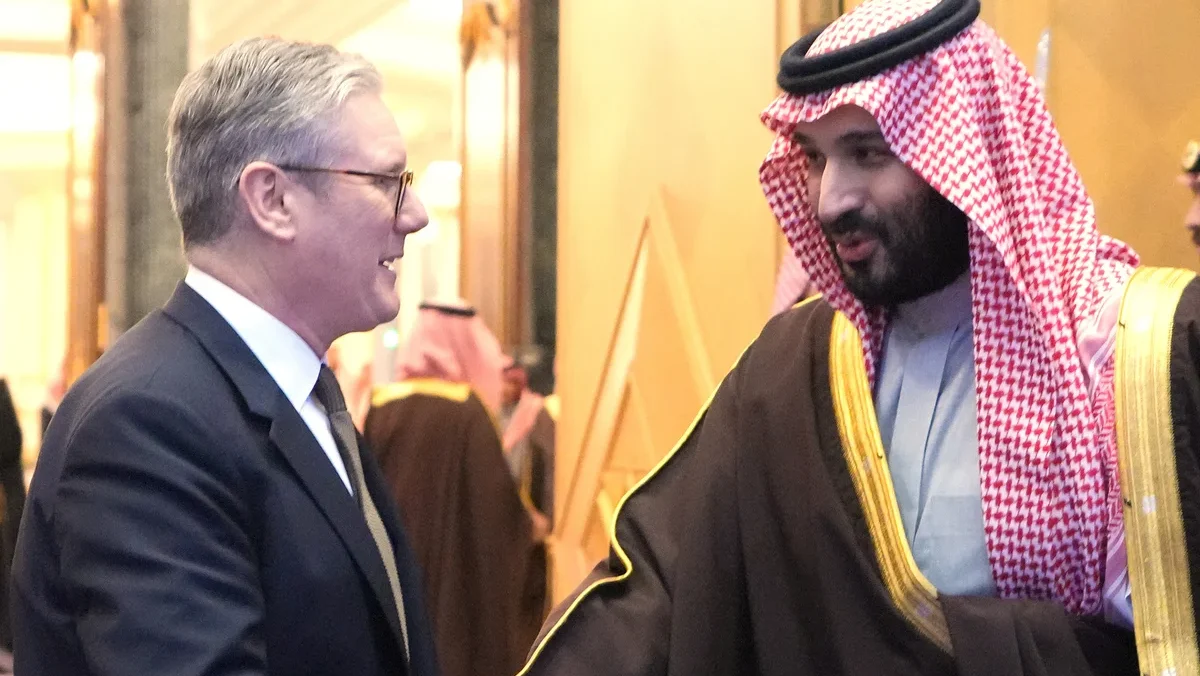A major trade deal between the UK–GCC is facing delays and growing criticism. The reason? Human rights. The UK is pushing for the inclusion of human rights protections in the agreement, but several Gulf countries are unhappy with this demand.
As the sixth round of talks took place in Riyadh, Saudi Arabia, tensions became clearer. The deal was supposed to bring the UK closer to Bahrain, Kuwait, Oman, Qatar, Saudi Arabia, and the United Arab Emirates. But now, it seems that these negotiations are turning into a debate on values.
A Deal That Started with Promise
When the UK first started talks with the GCC in 2022, there was a lot of hope. British officials said the deal could boost trade by 16% and open the door to new business in industries like food, fashion, tech, and green energy. With more than £60 billion already flowing between the two sides in trade each year, both parties saw the chance to grow even more.
The GCC is already a big trading partner for the UK, larger than India. British goods are popular in Gulf countries, and UK-based companies often do business there. So, both sides had a lot to gain.
But Then Came the Human Rights Issue
The turning point came when UK negotiators said they wanted to include a section on human rights in the final deal. They argued that it’s now standard practice to include such protections in trade agreements, especially after Brexit. According to UK lawmakers and human rights groups, this shows that the UK is serious about its values and international commitments.

But this didn’t sit well with several GCC countries. Some governments in the region believe that trade deals should focus only on economics—not politics or rights. They view this move as interference in their internal matters.
Gulf Officials Push Back
Many Gulf officials have expressed frustration. They say they are being unfairly targeted and that the UK is trying to impose its values. A few diplomats even warned that if the UK keeps insisting on human rights clauses, the deal might never be signed.
One Gulf official, speaking anonymously to reporters, said: “We are ready to do business, but not at the cost of being lectured.”
This reaction has led to a slowdown in talks, even though both sides still say publicly that they are working hard to reach an agreement.
What the UK Government Says
Back in London, the UK government is trying to strike a balance. Officials have confirmed that they want the deal to go through—but not without commitments to certain values. In fact, the UK Parliament has received pressure from all sides to ensure that human rights are part of this deal.
Some lawmakers are urging the government not to ignore human rights concerns, especially on issues like freedom of speech, treatment of migrant workers, and women’s rights. They argue that failing to raise these concerns would make the UK look weak and desperate for deals.
Trade Secretary Kemi Badenoch has remained mostly quiet about the specifics of the deal but has hinted in public speeches that the UK won’t “compromise on its principles.”
Human Rights Groups Weigh In
International human rights organizations are also watching closely. Groups like Amnesty International and Human Rights Watch have long criticized several Gulf states for their human rights records. They say that the UK has a duty to speak up and use its economic influence for good.
One Amnesty spokesperson said, “The UK should not reward governments with poor human rights records by giving them easy access to trade deals.”
They believe that the inclusion of human rights in the agreement could actually help bring positive change in the region.
Business Community Is Divided

Within the UK’s business community, opinions are mixed. Some companies are worried that pushing human rights too hard could ruin a very profitable opportunity. Others support the move, saying that responsible business also means doing what’s right.
A few major British brands that operate in the Gulf have said privately that they would prefer to keep politics and trade separate. But younger startups and ethical brands are more open to the idea of promoting human rights through business ties.
Some experts argue that even if the human rights section is kept vague, having it in the deal sends a message.
What Happens Next?
For now, the deal is still on the table. Negotiators from both sides are trying to find a middle ground. The UK may soften its language or settle for a non-binding section on human rights, while the GCC might agree to some form of commitment without making it part of their laws.
But this situation has made one thing clear: trade deals in today’s world are no longer just about money. They are also about values, image, and global influence.
The next round of talks is expected later this year, but unless both sides can come to an understanding on the human rights issue, the deal could be delayed indefinitely—or fall apart completely.
Bigger Implications for UK Trade
This situation also shows the challenges the UK faces after Brexit. As it seeks new trade deals outside the EU, it has to deal with countries that may not share the same views on democracy, rights, and governance.
Balancing profit with principles is not easy. But as more people—especially younger generations—pay attention to ethical business practices, governments may find that they can’t separate values from trade anymore.
Also read: CBUAE Keeps Interest Rates Steady Despite Global Pressure


